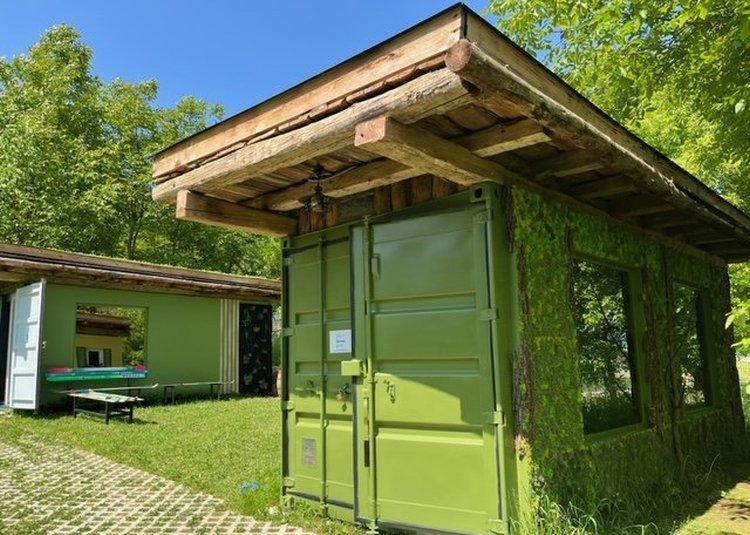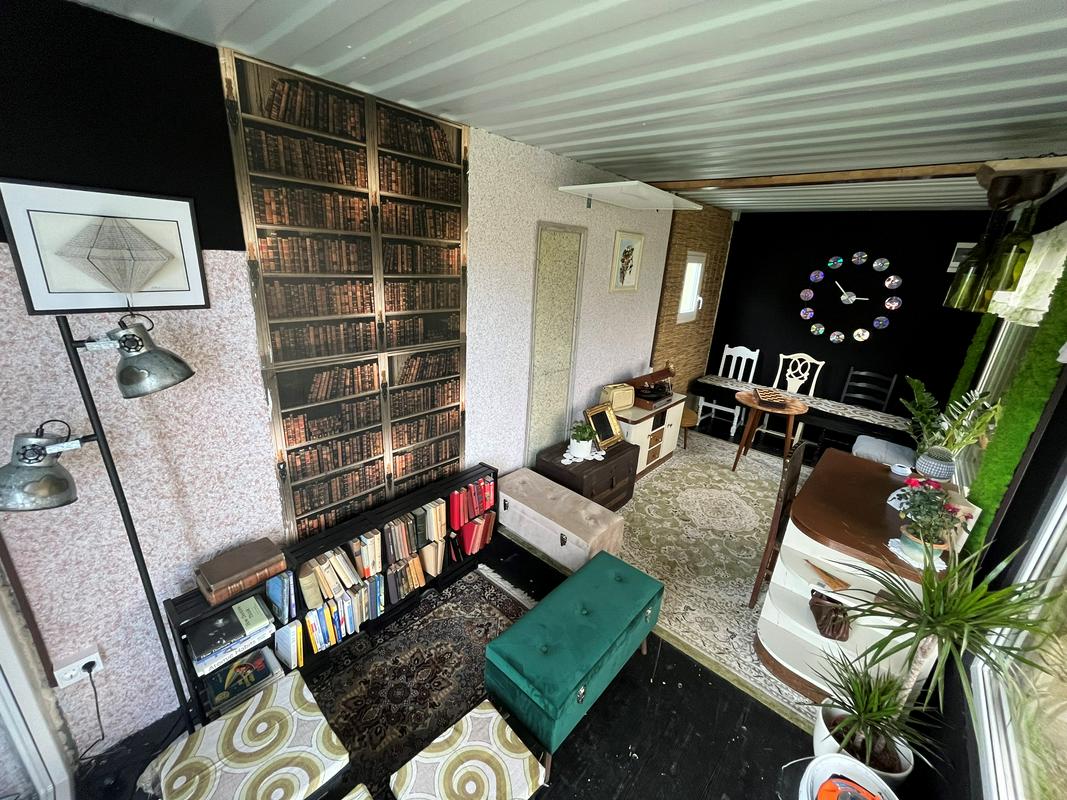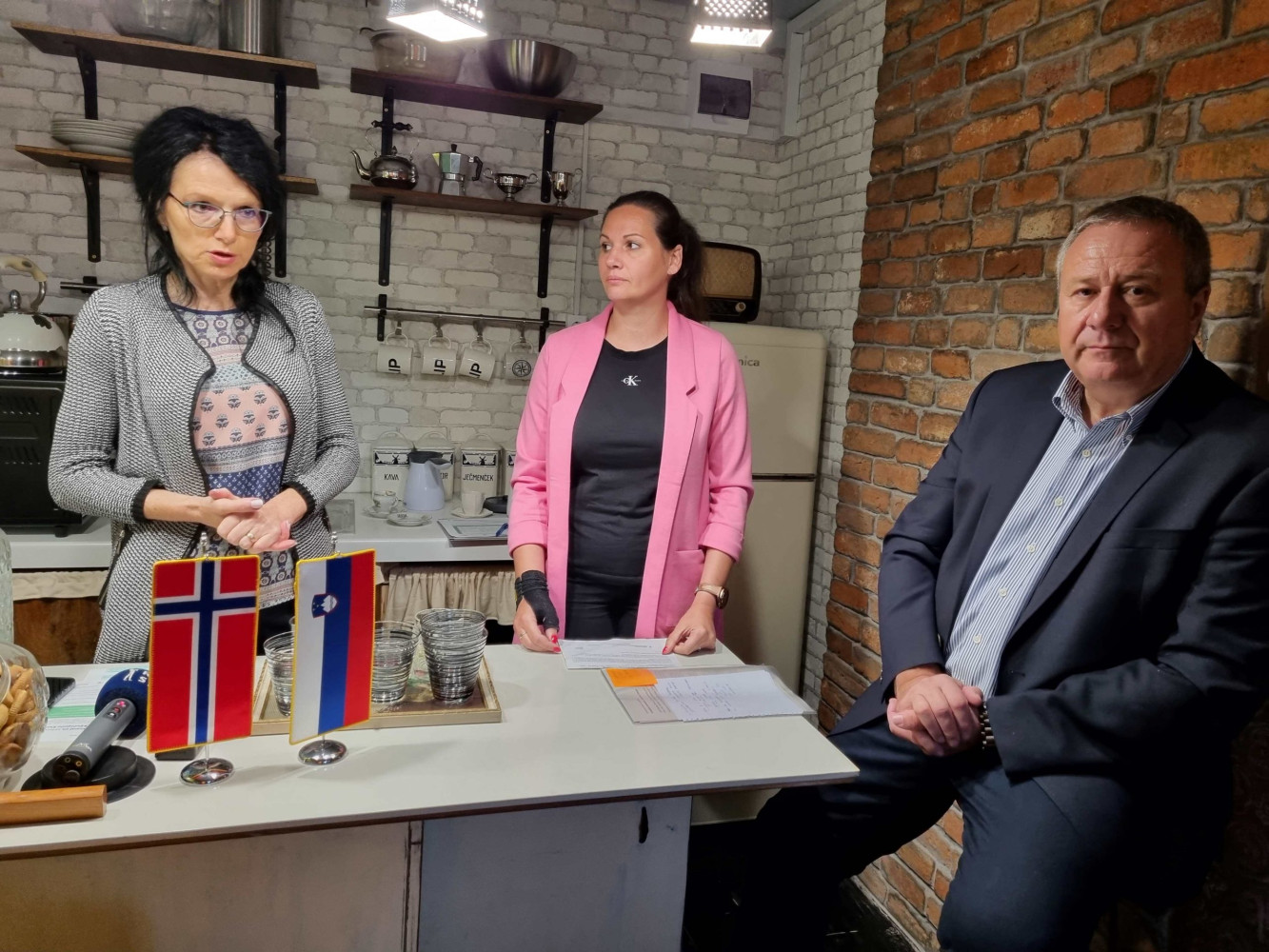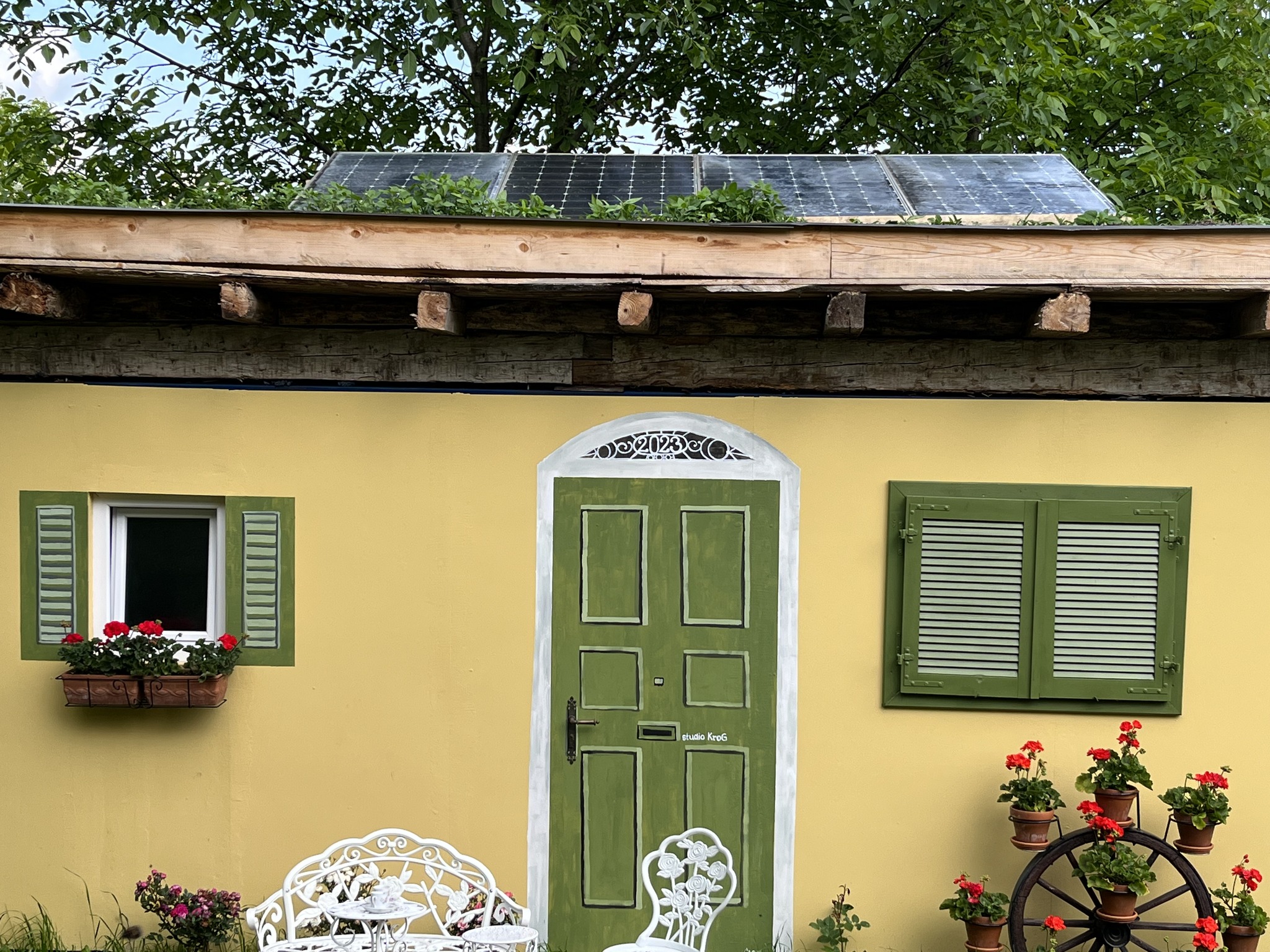
5 June 2023 – On World Environment Day, StudioKroG project partners presented good practices in environmental conservation and sustainable development at a press conference that took place in used shipping containers. It has become clear that taking care of our planet is crucial, as we face many challenges that demand immediate action. That is why, on World Environment Day, the Circular Economy Studio project (StudioKroG) was presented to help create a more sustainable and responsible future.
World Environment Day is the day we focus on renewable energy for a sustainable future. The shift to renewable energy sources is essential to reduce greenhouse gas emissions, conserve natural resources and move towards a more sustainable future. World Environment Day promotes and highlights the importance of using renewable energy sources such as solar, wind, hydro, geothermal and other inexhaustible sources that have a lower environmental impact than fossil fuels. The project Circular Economy Studio stands for all the abovementioned (Slovenske Konjice, Reuse Centre). On this day, the partners of the studioKroG project, supported by the Norwegian Financial Mechanism, presented the latest approaches that set new standards in sustainable architecture, design, and construction in line with circular economy principles.

Circular Economy Studio is an innovative concept based on circular economy principles. Circular economy is an approach that aims to limit the consumption of natural resources, reduce waste, and promote recycling and reuse. This approach is based on the idea that products, materials and resources can be used in endless cycles, reducing the negative environmental impact. The Circular Economy Studio project is designed to become a model of sustainable development and circular economy for other local communities. The project aims to create a comprehensive environmental and economic system to promote waste reduction, reuse, and recycling and stimulate local employment and economic growth. The project has developed an innovative infrastructure that provides a better understanding of circular economy and promotes local production and reuse of materials. The aim is to achieve full reuse of resources and minimise waste.
Dr Klavdija Rižnar from the Scientific Research Centre Bistra Ptuj, the project promoter, presented the project, its objectives and the changing paradigm where circular economy represents a shift from the traditional linear model (production, use, disposal) to a model that emphasises resource renewability and the conservation of materials in a circle. For circular economy to work, we need to change how we think and act and rethink the entire life cycle of products.
Mag Bojan Pirš, Director of OKP Rogaška Slatina, which is a partner in the project and is actively involved in the project offering four shipping containers of the OKP collection centre, where the Reuse Centre also operates, stressed that the company, as a public service provider, plays an important role in the overall system of circular resource management, especially in terms of reducing waste and in ensuring efficient use of resources. Indeed, a key principle of circular economy is waste reduction and resource efficiency, which reduces the need for energy use. Rather than ending up as waste, materials need to be kept in the cycle of use. Therefore, their proper source separation and diversion into the use of material streams, as illustrated by the StudioKroG concept, needs to be established.

Polona Kukovec Lakota from the Ormož Development and Research Centre outlined the importance of education and awareness-raising in circular resource use. Education and awareness-raising for individuals and organisations plays a key role in circular economy. We must focus on understanding the concept of circular economy, promoting sustainable lifestyles, and raising awareness about the relevance of waste reduction and resource efficiency.
Dr Marinka Vovk from the Reuse Centre, an investment partner in the StudioKroG project, presented practical examples of circular resource use in two completely refurbished (used) shipping containers, which demonstrate reuse waste design and industrial symbiosis, which in practice can be observed in the design of products made from waste. This is a good demonstration of the reuse potential, where we use only what already exists. The solar panels installed on the container, which no longer looks like a container, are the first example of reusing such waste under the industrial symbiosis system with Zeos Ltd. The project, thus, also contributes to renewable energies, which are key to reducing greenhouse gas emissions. Dr Vovk presented the multiplicative use of refurbished shipping containers, allowing the creation of sustainable and attractive spaces without the use of virgin materials and the development of green jobs in Slovenia.

StudioKroG is a leader in transforming containers into unique living units, offices, cafes, tourist info points, and other functional spaces for different target groups. The commitment to sustainability and the visionary approach include using renewable materials, energy-efficient solutions, and preserving the natural environment, which is also the hope of World Environment Day for the whole planet.
Summary of the statements given by Dr Klavdija Rižnar (Scientific Research Centre Bistra Ptuj) and Dr Marinka Vovk (Reuse Centre Ltd.)